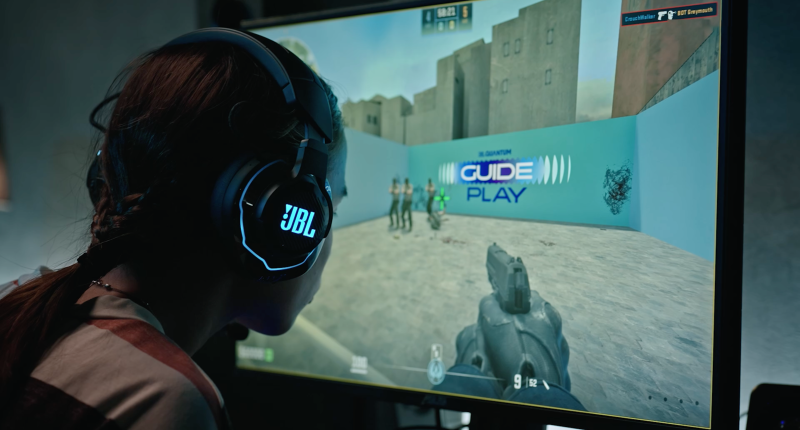INNOVATIVE technology now allows the visually-impaired to play previously inaccessible video games.
The AI software, combined with machine learning algorithms, means those with sight issues can now pick up their controller and take part in first-person shooter games.
Call of Duty, among many others, has been incredibly popular for years – but until now there hasn’t been much opportunity for VI gamers.
In fact, there’s an estimated 50 million aspiring players who are eager to join the FPS community, according to non-profit organisation Ablegamers.
The charity has helped create JBL Quantum Guide Play and started working on the new tech over a year ago.
JBL Quantum Guide Play has brought inclusivity to the industry by adding audio clues over objects and places in games.
The tool also uses advanced head tracking and Spatial Audio tech to simulate echolocation.
This gives players a heightened sense of awareness in the gaming environment.
JBL Quantum Guide Play is compatible with any headset and doesn’t cost a penny.
Visually impaired gamer, and Paralympic athlete, Sophie Soon said: “I believe gaming is now a real possibility for me,” after testing out the tech.
Most read in Tech
Meanwhile Josh Tseng, a digital accessibility specialist and visually impaired gamer, added: “It feels really nice to be included in a multiplayer game like this.”
Grace Koh, of JBL’s parent company Harman, said: “We recognise the immense potential of gaming to bring people together and provide immersive experiences for players of all abilities.
“We are creating a platform that enriches the gaming experience for everyone, transcending limitations and building a more inclusive gaming community.
“This is just a first step towards accessibility in first-person shooter games.
“We are making it open-source and hoping that brands and developers can adopt it for their games and even contribute to its improvement.”
It is now ready and available to download for free and gamers are being asked to offer any feedback.
This comes after one study suggested video game makers aren’t doing enough to cater for gamers with disabilities.
The video game industry has exploded over recent decades and the sector is now around £7.05bn.
But research has found that many disabled people feel left out.
Specific problems include a lack of control options, hard-to-read text , fast-paced game play and flashing lighting effects.
READ MORE SUN STORIES
As a result, 39 per cent have been forced to stop playing a game – or abandon it altogether.
The study also found 52 per cent would like to see more characters who represent their disability – and claim they would game more if this happened.










